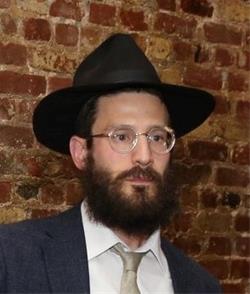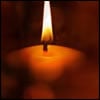
In recent years, a number of new books in multiple languages have brought the teachings of the Rebbe—Rabbi Menachem M. Schneerson, of righteous memory—to an ever-expanding audience, making the Rebbe’s profound message for humanity more accessible than ever. When Tzvi Freeman, a senior editor at Chabad.org and acclaimed author, set out to write his fifth book on Rebbe’s teachings he never thought the finished product would ultimately win a gold medal.
But win it did.
Freeman’s latest book, Wisdom to Heal the Earth, produced by Chabad.org and published by Ezra Press, an imprint of Kehot Publication Society, was selected as the Gold winner from among three other finalists in the Independent Book Publishers Association (IBPA) Benjamin Franklin Award™ Program as best book in the religion and spirituality category.
Regarded as one of the highest national honors for independent publishers, the award was presented by Terry Nathan, COO of the IBPA, as he slid the winning ticket out of an envelope on YouTube at a unique live-streamed ceremony dubbed as the “Shelter-in-Place” award ceremony, due to the coronavirus pandemic.
Freeman’s book was recognized, in the judges’ words, as “elegant, insightful, pulsing with deeper meanings that transcend any single belief system and reminds us of the true power of faith.”
Amid heightened interest in the Rebbe’s teachings this week with the approach of the 26th anniversary of the Rebbe’s passing on 3 Tammuz, corresponding this year to Thursday, June 25, the book sets out with an ambitious goal, and quickly plunges the reader into a vast sea of the Rebbe’s transformative knowledge.
The author notes that if there is a single, overarching theme that has been at the center of Jewish thought and practice throughout all time and across all borders and denominations, it is the desire and hope that the physical and spiritual universe should be brought to a state of complete and everlasting perfection, once and for all.
This great, mystical drive and goal, known as Tikun Olam, he writes, has been manifest in Jewish thought and practice in myriad ways over the past four thousand years, not the least in modern Jewish life through social activism—the concern for and practical help to people and things in need—which from the time of Abraham and Sarah has been a signature drive of the Jewish people.
A self-professed child of the ’60s who was drawn to the Rebbe’s message amid the destabilization of society and personal searching that marked that era, Freeman is noted for his unique talent in making the Rebbe’s messages that so inspired him accessible to every human being. Guided by the belief that with proper articulation, the Rebbe’s messages are universal in scope, Freeman has successfully made the Rebbe’s teachings accessible to the widest possible audience.
While he has already written a number of books on these topics, including the best-selling Bringing Heaven Down to Earth series, Freeman felt that his previous works were limited to the genre in which they became so popular: bite-size “meditations” for people to digest and ponder on their own.
Eager to present larger messages so necessary to heal the world, Freeman penned this new volume, including within it some longer prose that fleshes out core ideas.
The key thesis upon which the book rests, in Freeman’s words, is the notion that to heal the world, people must look beyond “Band-Aid” solutions and “live at a whole new level of health, beyond the state that allowed illness to begin with.”
How do we do that?
Well, Freeman argues, “The core issue is our attitude, our state of consciousness. We look at our world and we say, ‘This is a wild jungle with neither master nor meaning. How can I get all I can out of it before some other beast does? How do I avoid being eaten by some beast bigger than me?’ As though all of life is a zero-sum game.
“One of the Rebbe’s strongest points was that the world is not a meaningless jungle. It’s a masterfully exquisite garden. And we are both students and partners of its Creator.
“So a healed world, first and foremost, is one whose every inhabitant sees this world for what it truly is: A divine garden. And so, of course, we treat it that way. And we live in harmony with that divine beauty.”
How can one help but not be drawn by such compelling, universal ideas?
Indeed, it is such ideas—and others—that prompted one of the judges to say: “Most of the book is presented as short poetic bursts that allow the reader to contemplate what is being said without pushing a specific ‘right’ answer.”
“Wisdom to Heal the Earth” can be purchased online and at fine Jewish bookstores everywhere.







